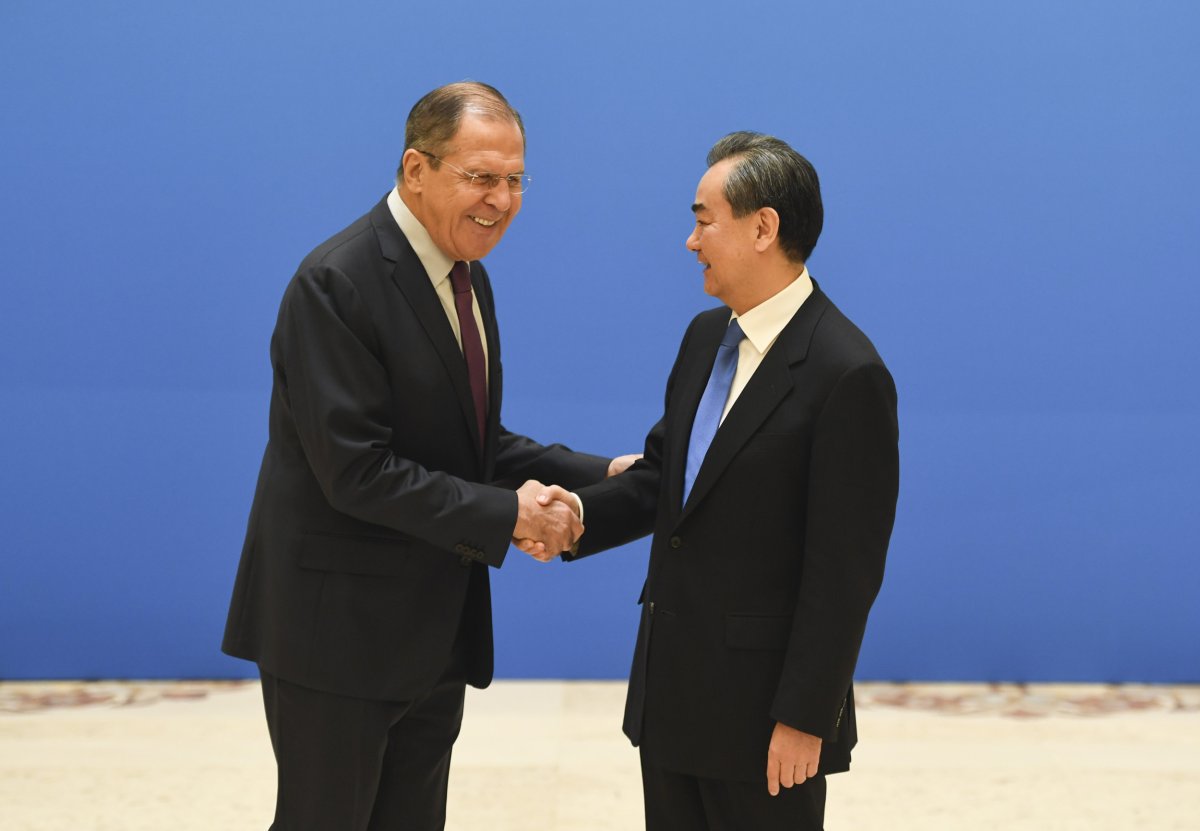Russian officials and state media have suggested Moscow may form a military alliance with Beijing and Delhi in response to claims that Washington is attempting to form a military bloc against Russia.
RIA Novosti, a state-owned media outlet, reported on Monday that Washington had deployed hundreds of thousands of military personnel, carrier strike groups and warplanes into the Asia-Pacific region, which would "become an analogue of NATO in Asia."
The report said that this bloc, though intended to contain China, will also "seriously affect the security of Russia."
"They need a wide bloc that would cover the entire western part of the Pacific," Doctor of Military Sciences Konstantin Sivkov was quoted as saying.
"Of course, this threatens Russia. After all, everything is happening on our eastern borders. US actions could lead to the creation of a Russian-Chinese military alliance. The question for India is to go over to the side of the Americans, with rather grave consequences for themselves, or to support Russia."
The report said the recent moves in Asia were similar to the North Atlantic Alliance that began at the end of the 2000s.
Former Japanese Prime Minister Shinzo Abe in 2008 proposed organising the Quadrilateral Security Dialogue with the participation of the United States, Japan, Australia, and India in the early stages. Other Asian countries then joined, including South Korea and Vietnam, which borders China.
The United States is accelerating the formation of an anti-Chinese coalition based on the Quadrilateral Security Dialogue, the report said, citing the General Directorate of the Russian General Staff.
It also accused the U.S. of "actively influencing" India.
"In addition to Australia and Japan, special importance is attached to the involvement of India in this format, which traditionally builds its foreign policy independently," Admiral Igor Kostyukov, Head of the Russian General Staff's Main Intelligence Department, is quoted as saying.
To woo Delhi, American lawmakers will need to "play on the long-standing Indian-Chinese contradictions", Konstantin Sokolov, Corresponding Member of the Russian Academy of Natural Sciences, told RIA Novosti.
"There is nothing unexpected in this. India and China are the main ones in the region, the rest have a supporting role. And the goal of the United States, as always, is to fight with someone else's hands, not to waste its own resources. Military support, security, including information, is a secondary issue," he said.
Sokolov said he had no doubt that such a military bloc would have negative consequences for Moscow. "We are historically on friendly terms with China and India," he said.
At the Moscow Conference on International Security on June 23, Kostyukov warned that Washington plans to deploy the 1st operational fleet to the Asia Pacific region by 2024, operating in the eastern Indian Ocean.
The official said this move would free up the resources of the 7th operational fleet and concentrate it on solving problems in the East China and South China Seas, strengthening Washington's foothold in the region.
The 7th fleet is the largest of the U.S. Navy's forward deployed fleets and its area of operation spans more than 124 million square kilometers—from the International Date Line to the India/Pakistan border; and from the Kuril Islands in the North to the Antarctic in the South.

Earlier this month, NATO leaders for the first time called out China and Russia for their military aggression.
However, in their 14,400-word final communique there was one mention of military co-operation: China "is also cooperating militarily with Russia, including through participation in Russian exercises in the Euro-Atlantic area", the statement said.
A senior NATO officer told the Financial Times in an interview published on June 25 that China's military development and growing diplomatic influence was "shocking."
After holding talks with China Foreign Minster Wang Yi on March 23, Russian Foreign Minister Sergei Lavrov hailed Moscow and Beijing's relationship as "unique" and characterised by "comprehensive partnership and strategic interaction".
American defense officials are divided about the military relationship between Moscow and Beijing.
"I see co-operation that is superficial at best. I think it is higher at the tactical level, soldier-to-soldier, and I think it is pretty close to phony at the strategic level," head of US European Command Gen. Tod Wolters told the Senate Armed Services Committee in April.
Admiral Philip Davidson, head of the U.S. Indo-Pacific Command until April, told the committee in March he saw "some collaboration" between Russia and China in the "tactical and operational space."
He added that he viewed it "with some alarm."
Uncommon Knowledge
Newsweek is committed to challenging conventional wisdom and finding connections in the search for common ground.
Newsweek is committed to challenging conventional wisdom and finding connections in the search for common ground.
About the writer
Jack Dutton is a Newsweek Reporter based in Cape Town, South Africa. His focus is reporting on global politics and ... Read more
To read how Newsweek uses AI as a newsroom tool, Click here.








